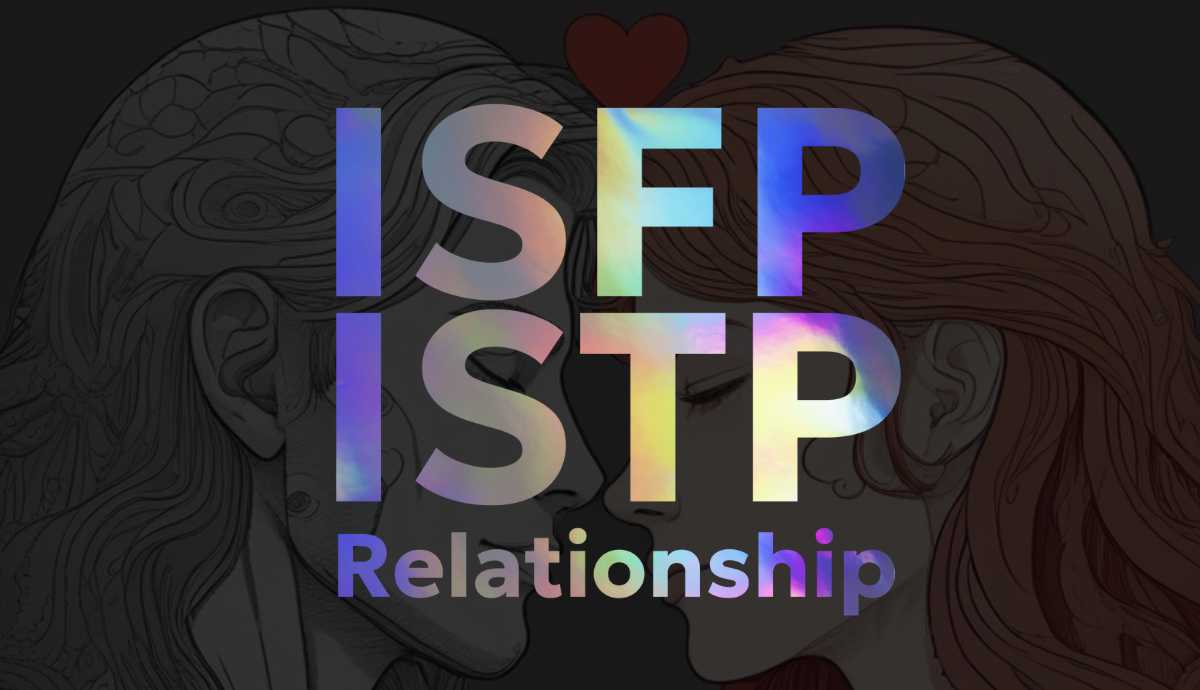Reserved, audacious, tactile and tough-minded, the ISTP male or female is an introvert who is not afraid to get their hands dirty. They are emotionally restrained yet driven by their impulses. This type communicates in concrete terms and can become very adept in their use of tools and techniques. Often quiet and terse with their words, ISTP verbal talents tend to go underdeveloped. Instead, they are more concerned with developing mastery with practical skills that involve coordination, precision and craftsmanship.
Estimated to be 5% – 10% of the population, the ISTP is a fairly common MBTI type, especially among males. ISTP females can often appear tomboyish and harbor interests that are atypical of their gender. People of this type seek to be highly autonomous and resist being influenced or controlled by other people and their opinions.
They desire freedom to act on their instincts and follow their impulses. Rules and regulations can often feel like an unnecessary encumbrance but they are more disposed to casually ignore such strictures rather than blatantly defy or rebel against them.
Because of their willful and spontaneous nature, these individuals are prone to deviating from schedules or not adhering to them strictly. On a whim, they are apt to drop their plans or move their schedule around to squeeze in time for something they suddenly have an urge to do.
Predictable routines bore them and they enjoy operating with very little planning, relying instead on their instincts and seeing where things take them. Although they can appreciate the utility of schedules, they don’t want their lives to be controlled by them.
Additionally, ISTPs can be very daring, putting themselves at risk to do what they think is necessary. They like to live on the edge and to do things that give them a thrill and a sense of accomplishment. They are also driven to test their skill and courage with daunting challenges.
This type is motivated to solve problems and figure out better ways for sharpening their skill sets. Because of their appetite for physical pleasure, ISTPs can also be very indulgent with food and various mind altering substances. At some point however, they are bound to take some interest in looking after their physical health and wellbeing so they can continue to live an active and independent life well into their advanced years.
This personality type often prefers to work with technology, tools and machinery than deal with people-oriented situations. Thus, many ISTPs are drawn to STEM fields where they can build and engineer useful things. Academically, ISTPs may find traditional curriculums and classroom styles of learning under-stimulating for them.
They prefer to be more hands on with what they are learning rather than just having information dictated to them. In many cases, these types can gain great proficiency in areas where they are self-taught. Nevertheless, those who persist in their education can do well as surgeons, musicians, chefs, pilots and more. They are often drawn to blue-collar trades like plumbing, electrical and maintenance work.
ISTP individuals take life rather seriously. They apply their introverted thinking to analyze and improve their performance and technique. They can be intensely introspective and observational and prone to spending a lot of time to themselves immersed with their craft or interests.
They are good at handling technical problems but can stumble when it comes to managing interpersonal issues. ISTPs tend not to openly express how they feel and it can be difficult to discern it from their face. In most cases, they may show mild signs of irritation or discomfort. They avoid emotionality but eventually, negative emotion that they’ve repressed for too long can erupt with startling intensity.
Despite being introverted, this type has an openness to new experiences that draws them out of their introverted bubble again and again. They are lone wolves essentially, but are fiercely loyal to their close friends and loved ones. They are willing to make valiant sacrifices, coming to the rescue when their powers are needed.
Under pressure, the ISTP shows a remarkable ability to rise to the occasion. This type thrives on adrenaline-pumping situations that call them to action. Because they are able to lose themselves in the moment, they are good at improvising effectively. They trust their instincts and are less encumbered by the overthinking and need for planning that other types rely on.
The ISTP type is logic-oriented and they focus on understanding reality empirically through experiencing and interacting with it. Therefore, they are less concerned with idealistic notions of what reality should be or spending a lot of time trying to interpret the meaning of it all.
Doing exciting things that engage their senses is for them, a concrete and gratifying way to get outside of themselves. ISTPs are masters of tools and techniques, but their most important instrument is their body. Their kinesthetic intelligence and spatial awareness can often help them excel as athletes and technicians.
However, because they have tertiary introverted intuition, ISTPs are not always preoccupied with the present. They do think about the future and emergent patterns and also give some attention to the abstract implications of their significance.
When they slip into an introverted loop, they can totally bypass their extraverted sensing. They just bounce between their Ti and Ni in a prolonged analysis of impressions and abstract meanings. Extraverted sensing is their window to the world and so it is important that ISTPs use it regularly, because without it, their perspectives can become overly insular and detached from reality.
Other MBTI Types:
- INTP Personality Type
- INTJ Personality Type
- ENTP Personality Type
- ENTJ Personality Type
- INFP Personality Type
- INFJ Personality Type
- ENFP Personality Type
- ENFJ Personality Type
- ISTJ Personality Type
- ISFJ Personality Type
- ESTJ Personality Type
- ESFJ Personality Type
- ISFP Personality Type
- ISTP Personality Type
- ESTP Personality Type
- ESFP Personality Type
related posts:
Want to know your astrology placements? You can generate your astrology chart here with our free birth chart generator tool.
- ISTP Shadow: The ISTP Dark Side
- ISTP Weaknesses; 7 Struggles of Being ISTP
- 6 High-Earning ISTP Careers
- 12 Shades of ISTP | MBTI & The Zodiac
- INTP/ISTP Inferior Fe Subtypes | mbti-info
- ESTP and ESFP in love: 6 Dynamics of Their Relationship - September 4, 2024
- ISFP and ISTP in love: 5 Dynamics of their Relationship. - August 28, 2024
- ISFJ and ISTJ in love: 5 Essential Dynamics of their Relationship - February 24, 2024





